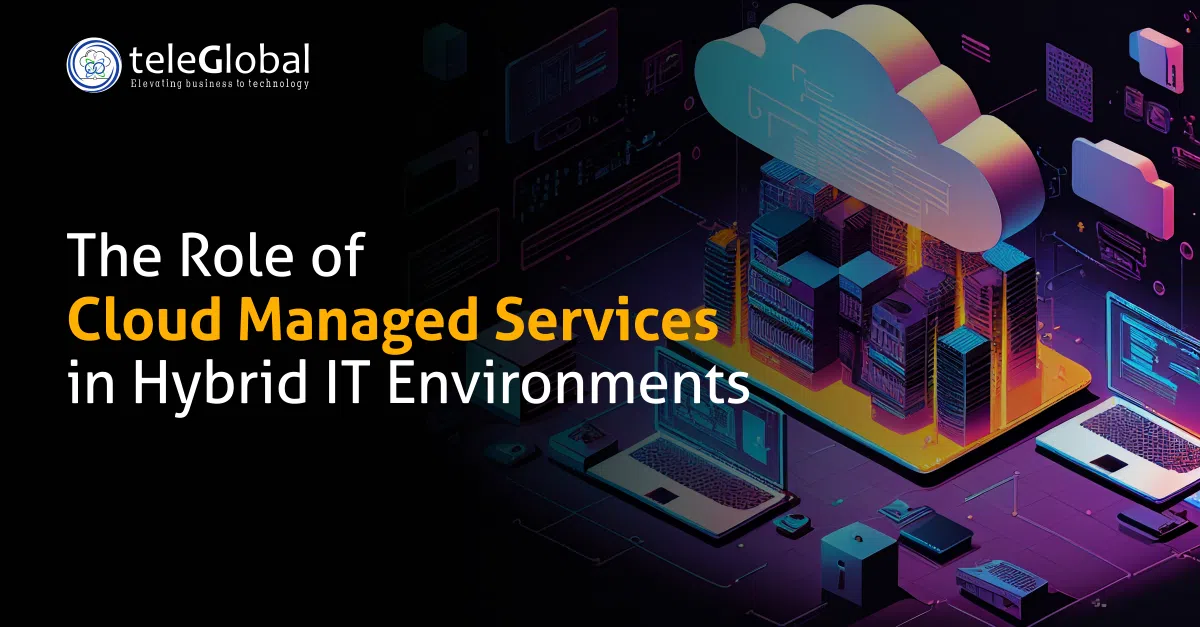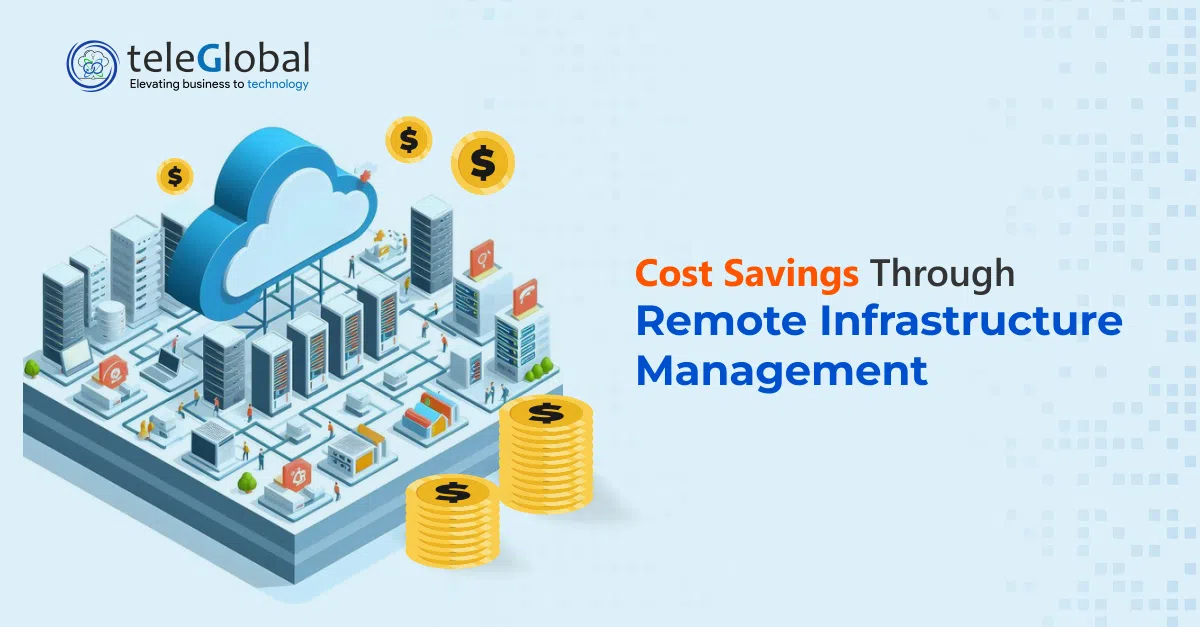
Introduction
In today’s rapidly evolving business landscape, the adoption of hybrid IT environments has become a strategic imperative for many organizations seeking to balance the benefits of on-premises infrastructure with the agility and scalability offered by cloud solutions. However, effectively managing such a complex hybrid environment requires specialized knowledge, resources, and operational capabilities that may exceed the capacity of internal IT teams. This is where Cloud Managed Services play a pivotal role.
The Role of Cloud Managed Services in Hybrid IT Environments
In today’s rapidly evolving business landscape, the adoption of hybrid IT environments has become a strategic imperative for many organizations seeking to balance the benefits of on-premises infrastructure with the agility and scalability offered by cloud solutions. However, effectively managing such a complex hybrid environment requires specialized knowledge, resources, and operational capabilities that may exceed the capacity of internal IT teams. This is where cloud managed services play a pivotal role.
The Essence of Cloud Managed Services
Cloud managed services involve outsourcing the management and oversight of an organization’s cloud infrastructure and services to a third-party provider. These services encompass a wide array of responsibilities, including but not limited to monitoring, maintenance, security, backup, disaster recovery, and performance optimization. By partnering with a managed services provider (MSP), businesses can leverage the provider’s expertise and experience to streamline operations, enhance security, and ensure compliance with regulatory standards.
Key Benefits of Cloud Managed Services in Hybrid IT Environments
Expertise and Strategic Guidance: Managed services providers bring specialized skills and deep knowledge of cloud technologies. They offer strategic guidance on optimizing infrastructure, implementing best practices, and navigating complex IT challenges, thereby enabling businesses to make informed decisions that align with their goals and objectives. Cost Efficiency and Predictable Budgeting: Outsourcing cloud management can lead to significant cost savings by eliminating the need for extensive investments in IT infrastructure, personnel training, and ongoing maintenance. Managed services are typically offered on a predictable subscription or pay-as-you-go basis, allowing businesses to budget more effectively and scale resources as needed.
Enhanced Security and Compliance: Cybersecurity is a paramount concern in hybrid IT environments where data flows between on-premises systems and cloud platforms. Managed services providers deploy robust security measures such as encryption, multi-factor authentication, intrusion detection, and continuous monitoring to safeguard sensitive information. They also assist businesses in adhering to regulatory requirements and industry standards, minimizing the risk of data breaches and compliance violations.
Scalability and Flexibility: Cloud managed services provide businesses with the agility to scale their IT resources up or down quickly in response to fluctuating demand, seasonal peaks, or growth opportunities. This scalability ensures that organizations can maintain optimal performance without over-provisioning or under-utilizing resources.
Proactive Monitoring and Maintenance: MSPs monitor the health and performance of cloud infrastructure round-the-clock. They proactively identify and address potential issues before they escalate, minimizing downtime and disruptions to business operations. This proactive approach enhances reliability, improves system availability, and enhances the overall user experience.
Focus on Core Business Objectives: By offloading routine IT management tasks to a managed services provider, internal IT teams can redirect their focus towards strategic initiatives that drive innovation, improve customer satisfaction, and foster business growth. This alignment of resources allows organizations to remain competitive in their respective markets.
Why do Organizations Need Cloud Managed Services?
1. Access to Specialized Expertise: Cloud managed services provide organizations with access to specialized expertise and skills that may not be readily available internally. MSPs employ professionals who are certified and experienced in managing complex cloud environments, ensuring that businesses benefit from industry best practices and optimal performance.
2. Focus on Core Competencies: By outsourcing routine IT management tasks to a managed services provider, organizations can free up their internal IT teams to focus on strategic initiatives and innovation that drive business growth. This alignment of resources allows businesses to maintain a competitive edge in their respective markets while optimizing operational efficiency.
3. Cost Efficiency and Predictability: Managed services are typically offered on a subscription or pay-as-you-go basis, allowing organizations to predict and control their IT expenditures more effectively. This cost-efficient model eliminates the need for upfront investments in hardware and software infrastructure, as well as ongoing maintenance costs.
4. Enhanced Security and Compliance: Cybersecurity threats continue to evolve, making robust data protection and compliance measures essential for organizations of all sizes. Managed services providers implement stringent security protocols, conduct regular audits, and ensure adherence to regulatory requirements, reducing the risk of data breaches and potential legal liabilities.
5. Scalability and Flexibility: Cloud managed services enable organizations to scale their IT resources rapidly in response to changing business demands, seasonal fluctuations, or growth opportunities. MSPs offer scalable solutions that can adapt to evolving needs without compromising performance or efficiency.
6. 24/7 Monitoring and Support: MSPs provide round-the-clock monitoring of cloud infrastructure and applications, detecting and resolving potential issues before they impact business operations. This proactive approach minimizes downtime, enhances system reliability, and improves overall user experience.
Choosing a Managed Cloud Service Provider: Key Factors to Consider
Choosing the right managed cloud service provider is critical to maximizing the benefits of cloud managed services. Here are key considerations organizations should keep in mind:
1. Expertise and Experience: Evaluate the MSP’s experience in managing cloud environments like yours. Look for certifications, industry recognition, and client testimonials that demonstrate their expertise.
2. Service Offerings: Assess the range of services offered by the MSP, including monitoring, maintenance, security, compliance, and support. Ensure their service portfolio aligns with your organization’s needs and growth objectives.
3. Security Measures: Inquire about the MSP’s security practices, protocols, and compliance certifications (e.g., ISO 27001, SOC 2). Discuss how they mitigate risks and respond to security incidents to safeguard your data and applications.
4.Scalability and Flexibility: Verify the MSP’s ability to scale resources and adapt to your changing business requirements. Discuss their approach to handling peak workloads, seasonal demands, and future expansion plans.
5.Performance and Reliability: Understand how the MSP monitors and optimizes performance to meet service-level agreements (SLAs). Inquire about their uptime guarantees, disaster recovery capabilities, and proactive maintenance strategies.
6.Cost Structure and Transparency: Review the MSP’s pricing models, billing practices, and contract terms. Ensure transparency regarding costs, service inclusions, potential add-on fees, and any hidden charges.
7.Support and Communication: Evaluate the MSP’s support capabilities, response times, and communication channels. Discuss how they handle support requests, escalations, and provide ongoing updates and reports.
Conclusion
Cloud Managed Services play a vital role in empowering businesses to navigate and thrive in hybrid IT environments. By outsourcing cloud management to experienced providers, organizations can unlock numerous benefits, including enhanced security, scalability, cost efficiency, and strategic guidance. This strategic partnership enables businesses to leverage cloud technologies effectively, streamline operations, and achieve their overarching business objectives in a rapidly evolving digital landscape. Embracing cloud managed services isn’t just about adopting a service—it’s about empowering organizations to adapt, innovate, and succeed in an increasingly complex and competitive global marketplace.
To explore how TeleGlobal International can help streamline your IT operations and maximize the benefits of hybrid IT environments through our tailored cloud managed services, contact us today. We are committed to delivering reliable, scalable solutions that align with your business goals and drive sustainable growth.








































